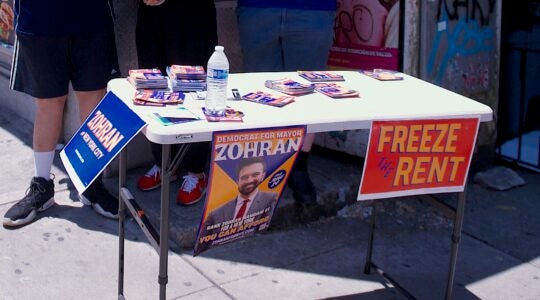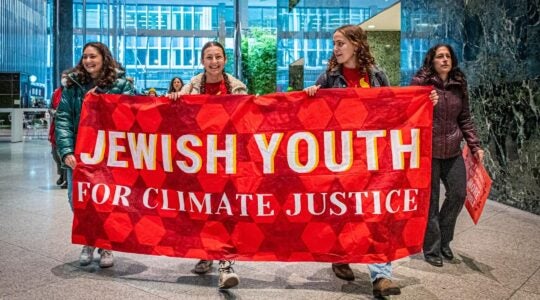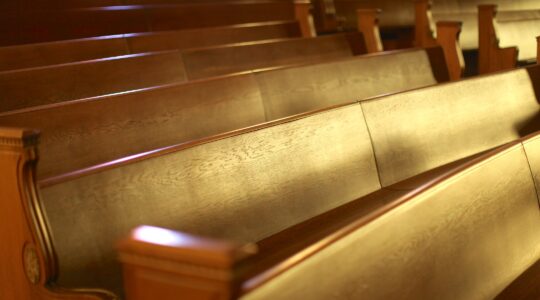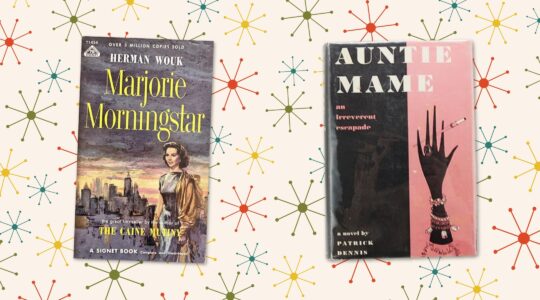For the past four years, my husband and I have been what I call “free-range Jews.”
After more than three decades as members of congregations on the Upper West Side and then in Westchester, we’ve been unaffiliated wanderers. Our adult daughter in Washington, D.C., welcomes us for Rosh HaShanah at Sixth and I, a popular, millennial-heavy congregation, and a close friend who is the executive director at a Northern Westchester Conservative synagogue makes sure we have seats for Kol Nidre and Yom Kippur services.
That’s worked well for us. We make our donations and contributions as a la carte participants, and savor our anonymity, content to focus on the prayers and the rabbis’ lessons.
That is until the shooting happened at Pittsburgh’s Tree of Life.
I was shattered. Shaken that I didn’t belong anywhere in my local Jewish community to express my seemingly bottomless sorrow and find consolation among others who felt as I did made me feel even more vulnerable and unmoored.
I wasn’t directly affected — other than feeling shocked and scared that Jews were murdered during Shabbat services. “Jewish geography” took on poignant and painful meaning, as I realized that I have perhaps two or three degrees of separation from that congregation. A young woman I had met at a summer wedding was a long-time member of Tree of Life; the wife of one of my son’s good friends came from that community; and one of my best friends from college, who isn’t Jewish, had lived in Squirrel Hill for seven years and walked or drove by that synagogue every week.
So when AJC Solidarity Shabbat was announced for the Sabbath after the Oct. 27 attack, and I saw that our local Reform temple was part of it for Friday night services, I asked the rabbi — who conveniently happens to be my neighbor — if I could attend.
Yes, I knew that the point of the initiative was to have congregations be open and welcome to all who wanted to show their support, Jews and non-Jews alike, but I felt awkward about returning to the synagogue we had left. (The congregation my sister-in-law and her family belong to wasn’t participating in the Show Up for Shabbat events.)
On that particularly chilly, rainy Friday in lower Westchester, I went to synagogue by myself, drawn to be with my neighbors and other Jews to mourn the rupture that had separated life in America from “then” to “now.” I hoped it would be the beginning of an end, of hatred and divisiveness, even as I feared it marked the beginning of something new and even more threatening in American politics.
The brightly lit sanctuary was crowded, but I easily found a place to sit that turned out to be directly behind someone I knew from our years of shopping at the local bakery. Before the service started, I was greeted by other members who knew me from the local school community, when our children had been in the same grades, as well as former work colleagues. It felt good to have those connections and support.
The service was the traditional Friday night one, with the addition of candles lit in memory of those who had been murdered in Pittsburgh. There were prayers offered not only by the eloquent and compassionate rabbi but also by a Protestant minister and a Muslim woman. Even as our pain was acknowledged, the rabbi asserted that good will, kindness and love would ultimately prevail over hatred and division.
And he made it clear that we were at a Shabbat service, not a memorial. As part of the service, there was a baby naming for a 2-week-old little girl. The poignancy of watching the child welcomed into the Jewish community at the end of a week that had seen the loss of 11 Jewish lives wasn’t lost on anyone. Yet by the time we all joined in clapping and singing Simon Tov U Mazel Tov, it felt appropriate and right that life — even joy — would continue.
That congregation may not be mine, but for those hours on that Friday night, I certainly felt as if I were one of theirs and bonded even more tightly to our heartbroken Jewish community.
Merri Rosenberg covers Westchester County for The Jewish Week.
The New York Jewish Week brings you the stories behind the headlines, keeping you connected to Jewish life in New York. Help sustain the reporting you trust by donating today.




